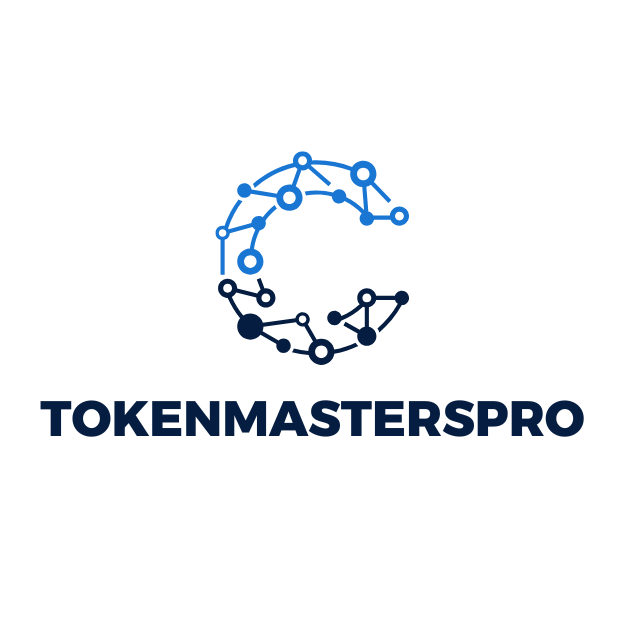In a world where coding skills can unlock doors to endless opportunities, who wouldn’t want to dive into the digital realm? Free coding tutorials are like the golden tickets to the tech amusement park—no entry fee required! Whether you’re a curious beginner or a seasoned pro looking to brush up on your skills, there’s a treasure trove of resources waiting to be explored.
Table of Contents
ToggleOverview of Free Coding Tutorials
Free coding tutorials play a vital role in developing programming skills. Many online platforms offer these tutorials, making coding accessible to a broader audience. Websites like Codecademy, freeCodeCamp, and Coursera provide structured lessons and projects. Users can learn at their own pace, which encourages consistent practice.
Interactive coding environments enhance the learning experience. These platforms allow individuals to write code directly in a browser, receiving immediate feedback. Such immediate responses help identify errors, promoting a better understanding of coding concepts.
Community support contributes significantly to the effectiveness of tutorials. Forums and discussion boards enable learners to ask questions and share experiences. Engaging with peers fosters a collaborative learning environment.
Diverse topics cover various programming languages and frameworks. For instance, languages like Python, JavaScript, and HTML/CSS are frequently featured. These tutorials cater to both novices seeking foundational knowledge and seasoned coders wanting to refine skills.
Certification options often accompany free coding tutorials. Organizations may offer completion certificates, enhancing resumes. This adds value for learners aiming for careers in technology.
Free coding tutorials serve as an essential resource for anyone pursuing coding skills. Their accessibility, interactivity, and support networks make them instrumental in the journey to becoming a proficient programmer.
Types of Free Coding Tutorials
Various types of free coding tutorials cater to diverse learning preferences. Each format offers unique advantages that can enhance the coding journey.
Video Tutorials
Video tutorials provide visual engagement and demonstrate coding concepts in real-time. Learners can follow along with instructors, watching the coding process unfold. Platforms like YouTube and Udemy feature countless videos that cover a wide range of topics, from basic programming to advanced techniques. With step-by-step guidance, these tutorials simplify complex subjects, making them easier to grasp. Participants can pause, rewind, or rewatch lessons, ensuring a complete understanding of each concept. Communities often form around popular channels, fostering collaboration and providing users with additional resources.
Written Guides
Written guides excel in offering detailed explanations and structured content for self-paced learners. Many websites host comprehensive articles and tutorials that break down programming languages and frameworks into digestible sections. Through this format, learners can reference code snippets, illustrations, and links to further reading. Popular platforms like MDN Web Docs and W3Schools provide vast collections of written resources. Readers can search specific topics, facilitating targeted learning and mastery of individual skills. The text-based format allows for quick access to information, ideal for learners who prefer reading over watching.
Interactive Platforms
Interactive platforms combine learning with hands-on coding experiences. Websites such as Codecademy and freeCodeCamp provide environments where users can practice coding in real-time. Offering exercises and projects, these platforms reinforce learned concepts through immediate application. Feedback is given as learners work through challenges, helping identify errors right away. Gamification elements, like earning badges and completing courses, enhance motivation and engagement. This approach suits those who thrive on active participation, encouraging a deeper understanding of coding techniques and best practices.
Popular Platforms for Free Coding Tutorials
Numerous platforms offer exceptional free coding tutorials that cater to different learning styles and preferences.
Codecademy
Codecademy presents interactive coding lessons that appeal to learners of all levels. Users engage with exercises in real-time, creating a hands-on experience that reinforces new skills. Offering a wide range of topics, Codecademy covers languages like Python, JavaScript, and Ruby. Its structured curriculum includes projects that apply learned concepts, preparing students for real-world applications. Community forums provide space for learners to ask questions and collaborate, enhancing understanding through collective knowledge.
FreeCodeCamp
FreeCodeCamp specializes in extensive coding tutorials that promote self-paced learning. Users can access a comprehensive curriculum covering web development, data visualization, and more. Learners progress through challenges that require practical application of coding concepts, fostering retention and skill mastery. Certificates awarded upon completion of projects serve as motivation and enhance resumes. Community support is strong, with forums and study groups available for collaboration and assistance.
Coursera
Coursera partners with universities and organizations to deliver high-quality coding tutorials. Students experience structured courses that include video lectures, quizzes, and peer-reviewed assignments. Topics range from basic programming to advanced machine learning, accommodating diverse skill levels. Professional certificates available through some courses can boost employability in competitive job markets. Engaging content from reputable institutions ensures learners receive relevant and up-to-date information.
Benefits of Learning Through Free Coding Tutorials
Learning through free coding tutorials provides a wide range of advantages for both beginners and seasoned developers. Accessibility ranks high on the list. Many individuals can immerse themselves in coding lessons from various platforms without any financial burden, breaking down barriers to entry in tech fields.
Self-paced learning enhances flexibility. Students can dive into complex topics or revisit challenging concepts based on their comfort level. Immediate feedback is another critical benefit. Interactive coding environments allow users to test code snippets and receive corrections instantly, facilitating a quicker grasp of coding principles.
Community support plays a pivotal role. Forums and discussion boards linked to these tutorials offer learners the chance to ask questions, share knowledge, and collaborate with peers. Networking opportunities arise, connecting students with others who share similar interests or career goals.
Diverse topics enrich the learning experience. From Python and JavaScript to HTML and CSS, learners can explore various programming languages that align with their aspirations. Many organizations even provide completion certificates, boosting resumes and enhancing employability prospects in the competitive tech job market.
Utilizing free coding tutorials encourages continuous skill development. Recognizing the rapid evolution of technology is crucial, and staying relevant means regularly updating knowledge. Engaging with these resources helps individuals adapt and grow alongside emerging trends.
With various platforms available, learners can choose the format that suits them best. Some may prefer interactive lessons, while others thrive in video lecture formats. This variety ensures a tailored learning journey that meets individual preferences and enhances overall effectiveness.
Tips for Maximizing Your Learning Experience
Utilize a structured learning path to ensure a comprehensive understanding of coding concepts. Establish clear goals for each tutorial session to increase focus and motivation.
Engage actively with interactive coding environments found in platforms like Codecademy and freeCodeCamp. These settings provide real-time feedback, allowing learners to correct mistakes and grasp concepts more effectively.
Join online forums and discussion boards to connect with other learners. Building a network can provide support, answer questions, and offer different perspectives on challenging topics.
Explore different learning resources that complement tutorials. Video lectures, documentation, and e-books expand knowledge and provide alternative explanations for programming concepts.
Set aside regular study times to create a consistent learning routine. Consistency reinforces skills and enhances retention, making it easier to progress through tutorials.
Practice coding outside of tutorials by working on personal projects. This application of knowledge solidifies understanding and builds confidence in coding abilities.
Seek out completion certificates offered by many platforms. These credentials can enhance resumes and showcase commitment to learning for potential employers.
Evaluate progress periodically by revisiting previous tutorials or complex topics. This reflection helps in identifying strengths and areas that require further review.
Balance ambition with realism. Learning to code takes time, and setting achievable milestones prevents burnout while maintaining motivation.
Embracing free coding tutorials can open doors to a world of opportunities in the tech industry. These resources not only provide essential skills but also foster a collaborative learning environment through community support. By engaging with interactive platforms and setting achievable goals, learners can navigate their coding journey more effectively.
With diverse topics and structured lessons available, aspiring coders can tailor their learning experience to suit their individual needs. The combination of practice, community interaction, and consistent effort can significantly enhance one’s coding proficiency. Ultimately, anyone willing to invest time and effort in these free resources can build a strong foundation for a successful career in technology.



